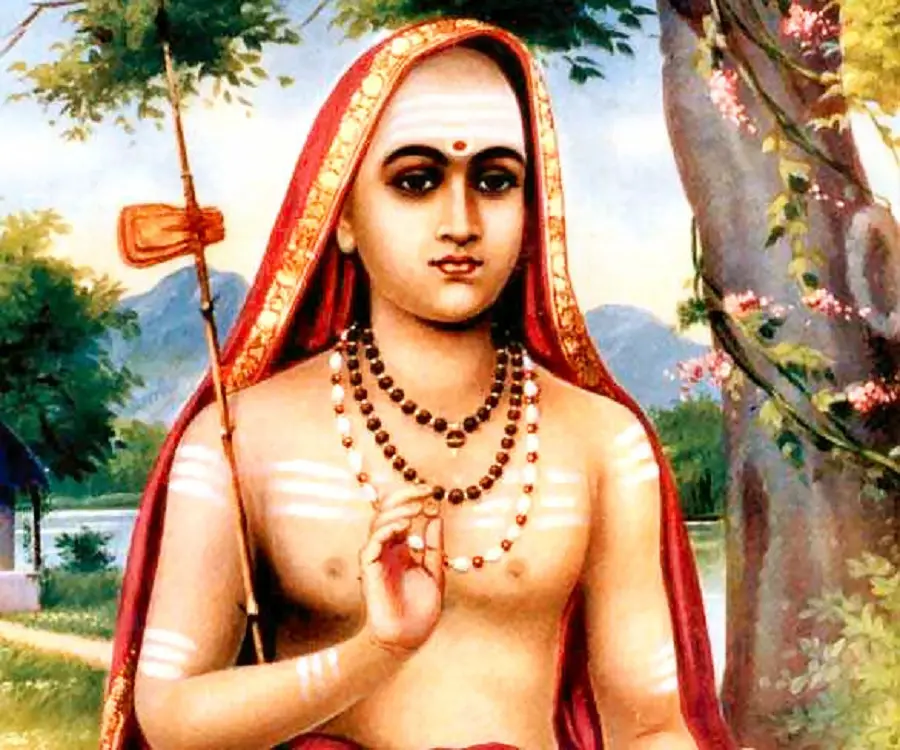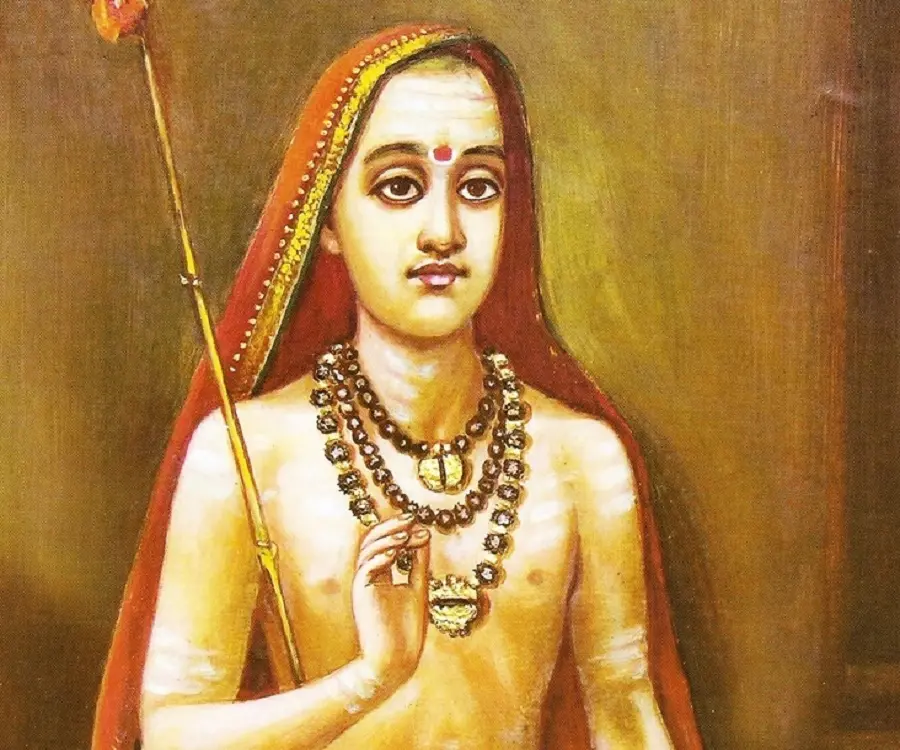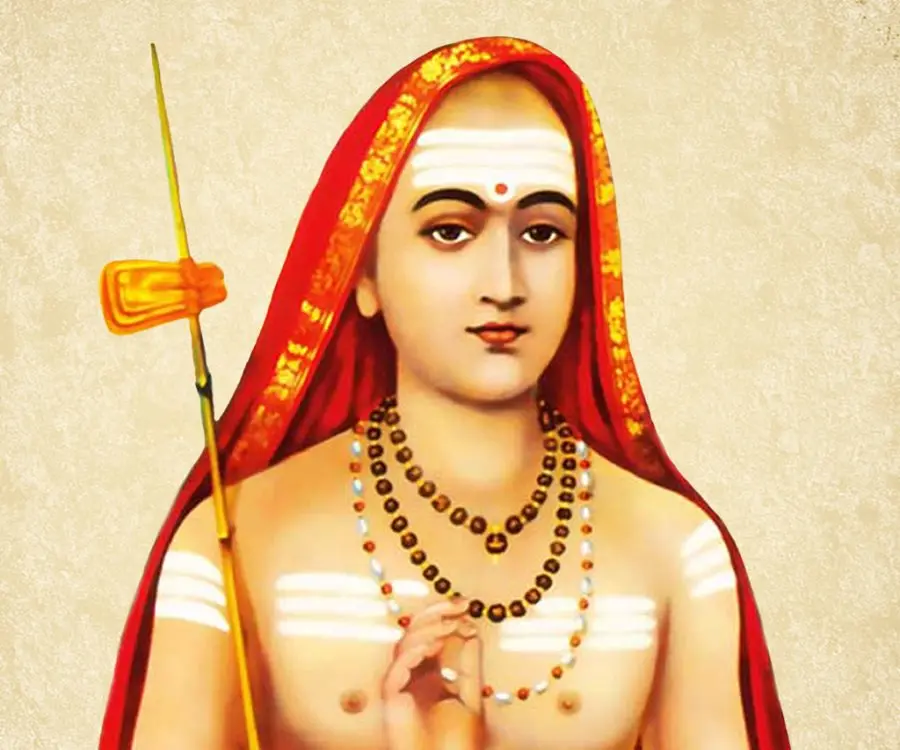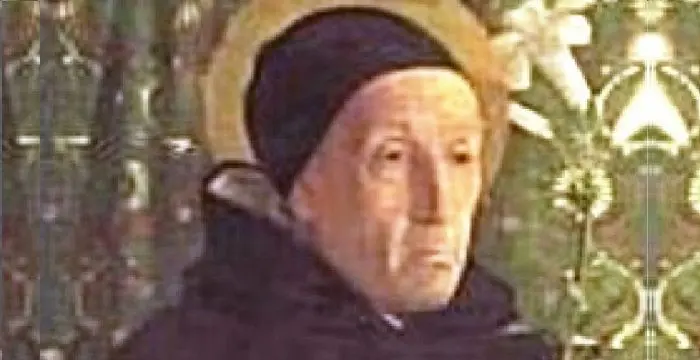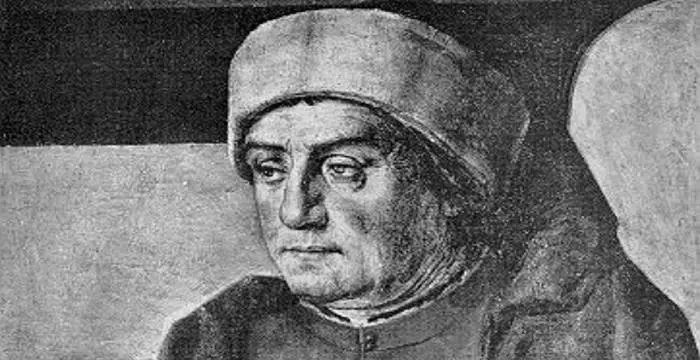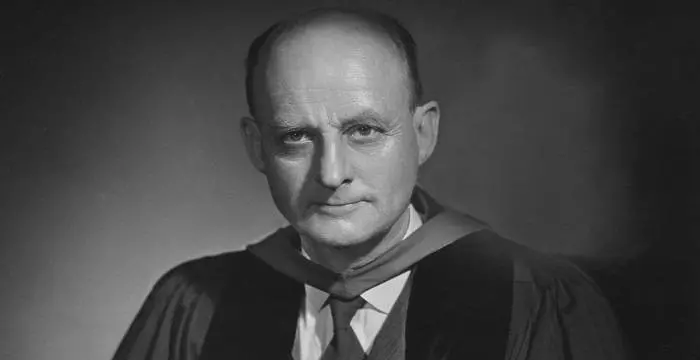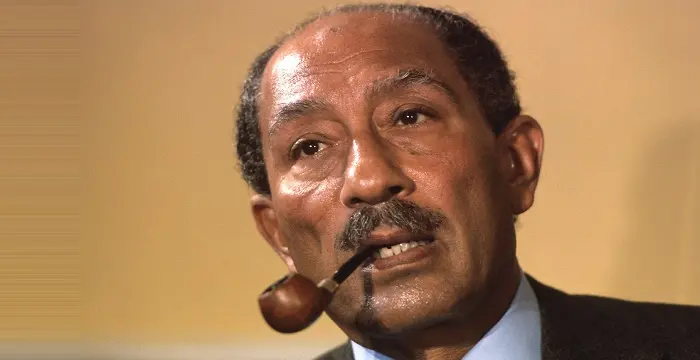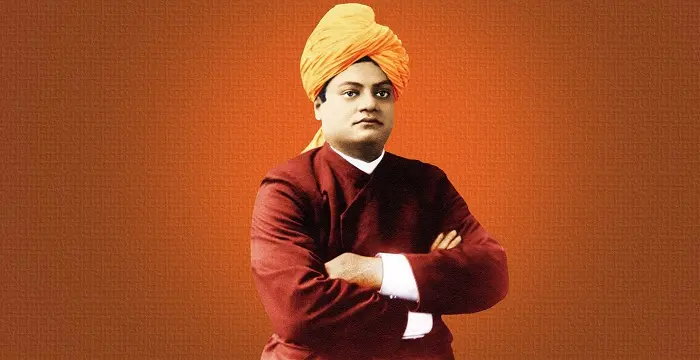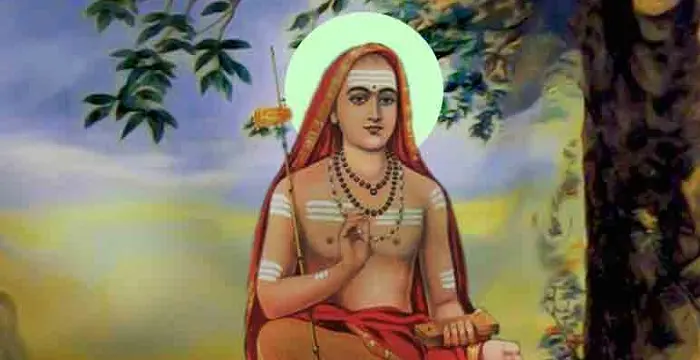
Adi Shankara - Advaita Philosopher, Timeline and Childhood
Adi Shankara's Personal Details
Adi Shankara was an early 8th century Indian Hindu philosopher and theologian whose teachings had a profound influence on the growth of Hinduism.
| Information | Detail |
|---|---|
| Birthday | 788 |
| Died on | January 1, 820 |
| Nationality | Indian |
| Famous | Philosophers, Theologians, Leaders, Spiritual & Religious Leaders, Advaita Philosopher |
| Known as | Adi Sankara, Sa?karacarya |
| Founder / Co-Founder |
|
| Birth Place | Kalady |
| Religion | Hinduism |
| Gender | Male |
| Born in | Kalady |
| Famous as | Advaita Philosopher |
| Died at Age | 32 |
Adi Shankara's photo
Who is Adi Shankara?
Adi Shankara was an 8th century Indian Hindu philosopher and theologian whose teachings had a profound influence on the growth of Hinduism. Also known as Shri Adi Shankaracharya and Bhagavatpada Acharya (the guru at the feet of Lord), he was a religious reformist who critiqued the rituals-oriented schools of Hinduism and cleansed the Vedic religious practices of ritualistic excesses. Adi Shankara is best remembered for his remarkable reinterpretations of Hindu scriptures and his commentaries on the Vedic canon (Brahma Sutras, Principal Upanishads and Bhagavad Gita). He was an exponent of the Advaita Vedanta school of philosophy which refers to the recognition that the true Self, Atman, is the same as the highest Reality, Brahman. His teachings on the philosophy have tremendously influenced various sects of Hinduism and have contributed to the development of the modern Indian thought. Born into a poor family in southern India, Adi Shankara was inclined towards spirituality and religion from a young age. He mastered all the Vedas and the six Vedangas from his guru and travelled widely, dispersing spiritual knowledge and spreading the tenets of Advaita Vedanta. In spite of dying at the young age of 32, he left an indelible mark on the development of Hinduism.
// Famous Philosophers
Martin Buber
One of the greatest philosophers to have ever walked on earth, Martin Buber contributions to philosophy is a long-standing one. Explore all about his profile, childhood, life and timeline here.
Lao Tzu (Laozi)
Lao Tzu was a legendary Chinese philosopher who wrote the important “Daodejing”. This biography profiles his childhood, life, career, achievements and timeline.
Alan Watts
Alan Watts was a famous British philosopher known for his Zen teachings and interpretations of Eastern philosophy. Read more about this great philosopher in the following article.
Childhood & Early Life
There are several discrepancies regarding the year of his birth. However, the mainstream scholarly opinion is that he was born circa 788.
He was born into a poor Brahmin family in Kaladi, Chera Kingdom, present day Kerala, India. His parents Sivaguru and Aryamba had been childless for a long time and had prayed to Lord Shiva to bless them with a baby.
It is said that Aryamba had a vision of Lord Shiva who promised her that he would be born as her first-born child. Soon she gave birth to a son in the auspicious Abhijit Muhurta and under the constellation Ardhra. The boy was named Shankara.
Shankara proved to be a brilliant boy and mastered all the Vedas and the six Vedangas from the local gurukul.
From a young age he was more inclined towards religion and spirituality and did not show much interest in worldly affairs. He wanted to become a Sannyasin (hermit) though his mother disapproved. She wanted him to get married and live the life of a house-holder.
Legend has it that he once went to take a bath in the river when a crocodile grabbed his foot. He then called out to his mother to give him permission to become a Sannyasin or else the crocodile will kill him. His mother agreed in desperation, and the crocodile let go of his foot. He emerged unharmed from the river and proceeded to renounce all his worldly attachments.
Later Life
He wanted to get formally initiated into the sacred order of Sannyasa and thus sought a guru to guide him in this direction. He met Swami Govindapada Acharya in a hermitage in Badrikashram (Badrinath) in the Himalayas. He narrated his life’s story to the guru and requested him to accept him as a pupil.
Swami Govindapada was very pleased with the youth and initiated him into the sacred order of Sannyasa. He then proceeded to teach Shankara the philosophy of Advaita which he himself had learnt from his guru, Gaudapada Acharya.
At the behest of his guru, Shankara went to Kashi and there he wrote his commentaries on the Brahma Sutras, the Upanishads and the Gita.
The details regarding the later years of his life are somewhat obscure though it is generally accepted that he travelled widely, participated in public philosophical debates with religious scholars, preached his teachings to his disciples and founded several “matha” (monasteries).
He is regarded as the founder of the Dasanami Sampradaya of Hindu monasticism and ?a?mata of Smarta tradition. He organized the Hindu monks of a section of the Ekadandi monks under four “Ma?has” (monasteries), with the headquarters at Dvaraka in the West, Jagannatha Puri in the East, Sringeri in the South and Badrikashrama in the North. He then placed four of his prominent disciples, Sureswara Acharya, Padmapada, Hastamalaka and Trotakacharya, in charge of the mathas.
He was a prolific author and wrote many commentaries which are considered authentic by scholars. Some of these are Bhasya on the Brihadaranyaka Upanishad, the Chandogya Upanishad, the Aitareya Upanishad, the Taittiriya Upanishad, the Kena Upanishad, the Isha Upanishad, the Katha Upanishad, and the Mundaka Upanishad.
Major Works
Adi Shankara was the principal exponent of the Advaita Vedanta-interpretation which refers to the recognition that the true Self, Atman, is the same as the highest Reality, Brahman. He systematized the works of preceding philosophers in this philosophy and his teachings played a pivotal role in the development of Hinduism over the centuries.
Personal Life & Legacy
Since Adi Shankara was the only son born after years of being childless, his mother was deeply attached to him. She feared that if her son became a Sannyasin, then there would be no one left to perform the last rites upon her death. Adi Shankara promised his mother that he would perform her funeral when the time came inspite of being a Sannyasin. He fulfilled his promise upon her death and performed her last rites in spite of facing many difficulties in doing so.
He is believed to have died in 820, at the age of just 32, at Kedarnath, a Hindu pilgrimage site in the Himalayas. However, some texts mention the location of his death as Tamil Nadu or Kerala.
// Famous Theologians
Meister Eckhart
Explore this biography to know the profile, childhood, life and timeline of Meister Eckhart, who brought in a great change in Germany with his groundbreaking thesis and ideas.
Anicius Manlius Severinus Boethius
Boethius was an early 6th century Roman senator and philosopher best known for his treatise ‘Consolation of Philosophy’. This biography of Boethius provides detailed information about his childhood, life, achievements, works & timeline.
Reinhold Niebuhr
Reinhold Niebuhr was a German-American theologian, intellectual and political commentator who wrote the famous book, ‘Moral Man and Immoral Society’. This biography provides information about his profile, childhood, life and timeline.
Adi Shankara biography timelines
- // 788There are several discrepancies regarding the year of his birth. However, the mainstream scholarly opinion is that he was born circa 788.
- // 820He is believed to have died in 820, at the age of just 32, at Kedarnath, a Hindu pilgrimage site in the Himalayas. However, some texts mention the location of his death as Tamil Nadu or Kerala.
// Famous Leaders
Edi Rama
Edi Rama is the current Prime Minister of Albania. Check out this biography to know about his childhood, life, achievements, works & timeline.
Tecumseh
Tecumseh was a Native American leader of the Shawnee clan. This biography profiles his childhood, life and timeline.
Khalifa bin Zayed Al Nahyan
Sheikh Khalifa bin Zayed Al Nahyan is the current President of the United Arab Emirates (UAE). Check out this biography to know about his birthday, childhood, family life, achievements and fun facts about him.
Anwar Sadat
Anwar Sadat was the third President of Egypt and has been awarded the Nobel Prize for his peace initiatives. To know more about his childhood, career, profile and timeline read on the following biography.
Leo Varadkar
Cam Leo Varadkar is the current Taoiseach—the Prime Minister—of the Republic of Ireland. Check out this biography to know about his childhood, family life, achievements and other facts about his life.
Swami Vivekananda
Swami Vivekananda was the chief disciple of Sri Ramakrishna, and was responsible for awakening India spiritually. Check this biography to know in detail about his life, profile and timeline.
Adi Shankara's FAQ
When was Adi Shankara died?
Adi Shankara was died at 0820-01-01
Where was Adi Shankara died?
Adi Shankara was died in Kedarnath
Which age was Adi Shankara died?
Adi Shankara was died at age 32
Where is Adi Shankara's birth place?
Adi Shankara was born in Kalady
What is Adi Shankara nationalities?
Adi Shankara's nationalities is Indian
Which company or organization was founded by Adi Shankara?
Adi Shankara was the founder/co-founder of Akhara
What is Adi Shankara's religion?
Adi Shankara's religion is Hinduism
How famous is Adi Shankara?
Adi Shankara is famouse as Advaita Philosopher
